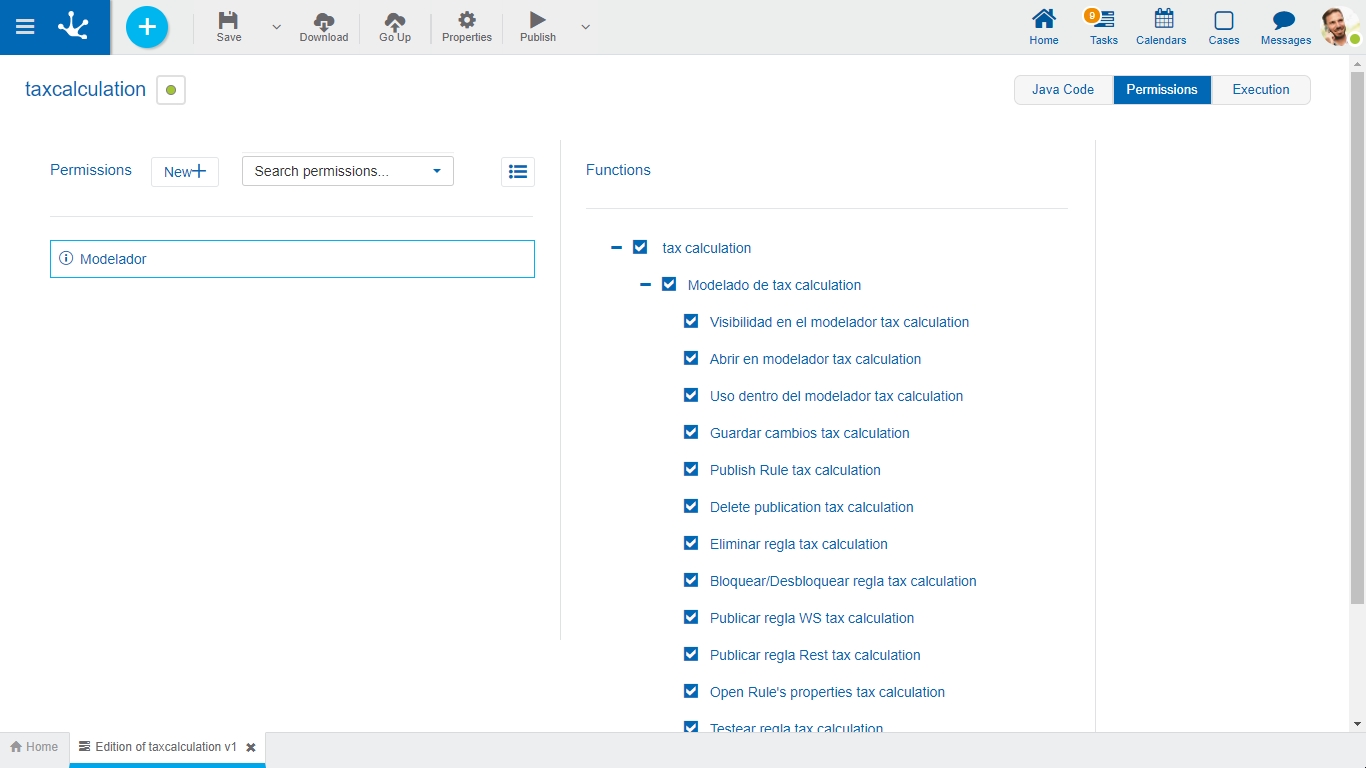Permissions
Allows to assign the security functions for use and modeling of the object to the existing permissions or to new permissions that the user creates, without having to go to the permission settings option from the menu.
Sections
●Permissions: Permissions to which object functions are assigned.
●Security Functions: Represents the total set of security functions, modeling and use of the object. Those that are marked are the ones included in the selected permission.
By default, all security functions for a new object are assigned to the permission Modeler.
Users who are assigned the permissions have access to the functions included in it.

 Opens a panel to create a new permission and once created, the security functions included in it must be selected .
Opens a panel to create a new permission and once created, the security functions included in it must be selected .
 Allows to select a permission from a list and enables the input of characters to filter the values in the list.
Allows to select a permission from a list and enables the input of characters to filter the values in the list.
 Opens the wizard to select a permission and once chosen, the necessary object security functions must be checked.
Opens the wizard to select a permission and once chosen, the necessary object security functions must be checked.
To unrelate a permission from the object, hover the cursor over the permission and press the icon  . If there are functions selected for that permission, they must be unchecked in order to delete it.
. If there are functions selected for that permission, they must be unchecked in order to delete it.
Modeling Security Functions
•Visibility in the modeler: Allows to display the object in the Deyel modeler.
•Open in modeler: Allows to show the object from the Deyel modeler.
•Use within the modeler: Allows the use of the object from another modelable object.
•Save rule changes: Enables the save, download rule and upload rule operations.
•Publish rule: Enables the publish rule operation.
•Delete publication: Enables the operation of deleting the object publication leaving its state as "Draft".
•Delete rule: Enables the delete rule operation.
•Lock/unlock: Enables the lock/unlock operation, only the user who locks it can modify it.
•Publish WS rule: Enables the publish rule operation as SOAP Web Services.
•Publish Rest rule: Enables the operation to publish the API Rest type rule.
•Open rule's properties: Allows to consult the rule properties panel.
•Test rule: Enables the operation to test the rule execution from the "Execution" option.
•Export rule: Enables the operation to export the rule definition.
Security Functions of Use
•Execute rule via Rest: Allows the smart thing type user (API Rest type "Client") to execute the endpoints of the rules API Rest.
